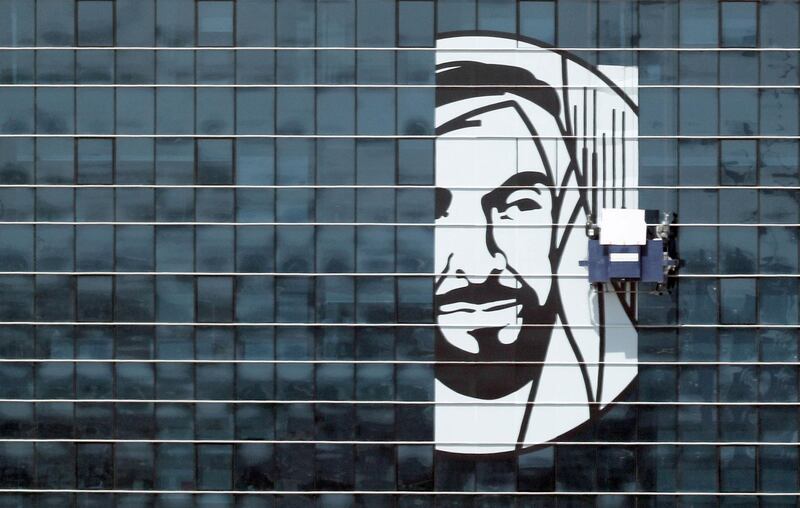A high point of the Year of Zayed is reached on Sunday as the country marks the 100th anniversary of the birth of the UAE's Founding Father on May 6. Fondly remembered, much loved, he remains ever-present in the minds of both UAE citizens and the millions of expatriates who have chosen to make their homes in the country that he did so much to create.
It’s now 13 years since Sheikh Zayed died. As he becomes a historical figure, it becomes increasingly difficult to distinguish between Zayed as a man and the leader who is now almost a matter of legend. That is particularly hard for the younger generation since few under the age of 25 will have any direct personal memories. Over the years, too, the country’s population has continued to grow at a rapid rate, with many of the expatriates who now live here having arrived since his passing.
It is easy to examine the country's modern infrastructure, from roads to ports and airports, from buildings to the enviable healthcare and educational systems, and to study the opportunities now on offer for the people of the UAE, both men and women, as well as the way in which they have grasped those opportunities. All of that has been built on the foundations that Sheikh Zayed and his fellow Rulers laid down. What is less easy to comprehend, at least for those without personal experience, is how he developed his vision for the country and from where he derived the determination to bring it to fruition. To achieve that insight, one must turn to his own words and to the comments made about him by those who witnessed him at work.
In an early biography, The Desert Falcon, written more than 40 years ago, Sheikh Zayed recalled how, long before he became Ruler of Abu Dhabi in 1966 and then UAE President in 1971, he had been deeply impressed by the schools and hospitals he had seen on his first visit to Europe in the early 1950s. He became determined that his own people should one day have the benefit of similar facilities.
”There were a lot of dreams I was dreaming about our land catching up with the modern world,” he said, “ but I was not able to do anything because I did not have the wherewithal in my hands to achieve these dreams. I was sure, however, that one day they would become true.”
From those dreams, he developed his vision – and, on becoming Ruler of Abu Dhabi and then President, the wherewithal became available. Of his first few weeks as Ruler, he noted, “All the picture was prepared. It was not a matter of fresh thinking, but of simply putting into effect the thoughts of years and years.”
_______________
More from Peter Hellyer
[ Nature lovers and hunters forge unlikely alliances at a birding summit ]
[ Once-neglected buildings bear mute witness to our past ]
[ Claims that sport is elitist are absurd – just ask any amateur cricketer in the UAE ]
_______________
The innovations that he introduced can be easily portrayed, whether through old photographs or a dry listing of statistics. It is more difficult, however, to explain the nature of the fundamental change that they represented.
Innovation is today, rightly, characterised as a key element of the modern UAE. It is easy, though, to forget that Sheikh Zayed was himself our innovator par excellence. The changes he introduced, the process of development that he led, represented a veritable revolution, covering the nature of government, the structure of settlement, opportunities for citizens and other residents and much more. Speaking during "Innovation Month" in February, one leading Abu Dhabi official commented that: "Today, the word 'disruption' is mainstream, and we hear it used across all industries and sectors. And the late Sheikh Zayed himself led this 'disruptive' trend because he himself was disruptive when he established the Union, and came from Al Ain to break the barriers and expand the frontiers of the economy."
The "disruption" initiated by Sheikh Zayed was a gentle process, pushed forward in a determined manner, yet with consultation and consent. “I am not imposing change on anyone,” he noted. “All of us have our opinions, and these opinions can change. Sometimes we put all opinions together, and then extract from them a single point of view. This is our democracy.”
Innovation, inspiration, vision and consent – these are all a part of the leadership provided by Sheikh Zayed and from which this country has benefited and will continue to benefit.
One foreign observer who saw the early years of Sheikh Zayed's rule at close hand was Archie Lamb, British Political Agent in Abu Dhabi from 1965-1968, in the years shortly before the formation of the UAE federation. In his dispatches to London, Lamb provided a description which goes some way towards giving an impression of the UAE's founding father: "The man who had the wind of heaven always blowing through his bisht (cloak)."
On Sheikh Zayed’s 100th birthday, that remains an apt epitaph.
Peter Hellyer is a consultant specialising in the UAE’s history and culture





